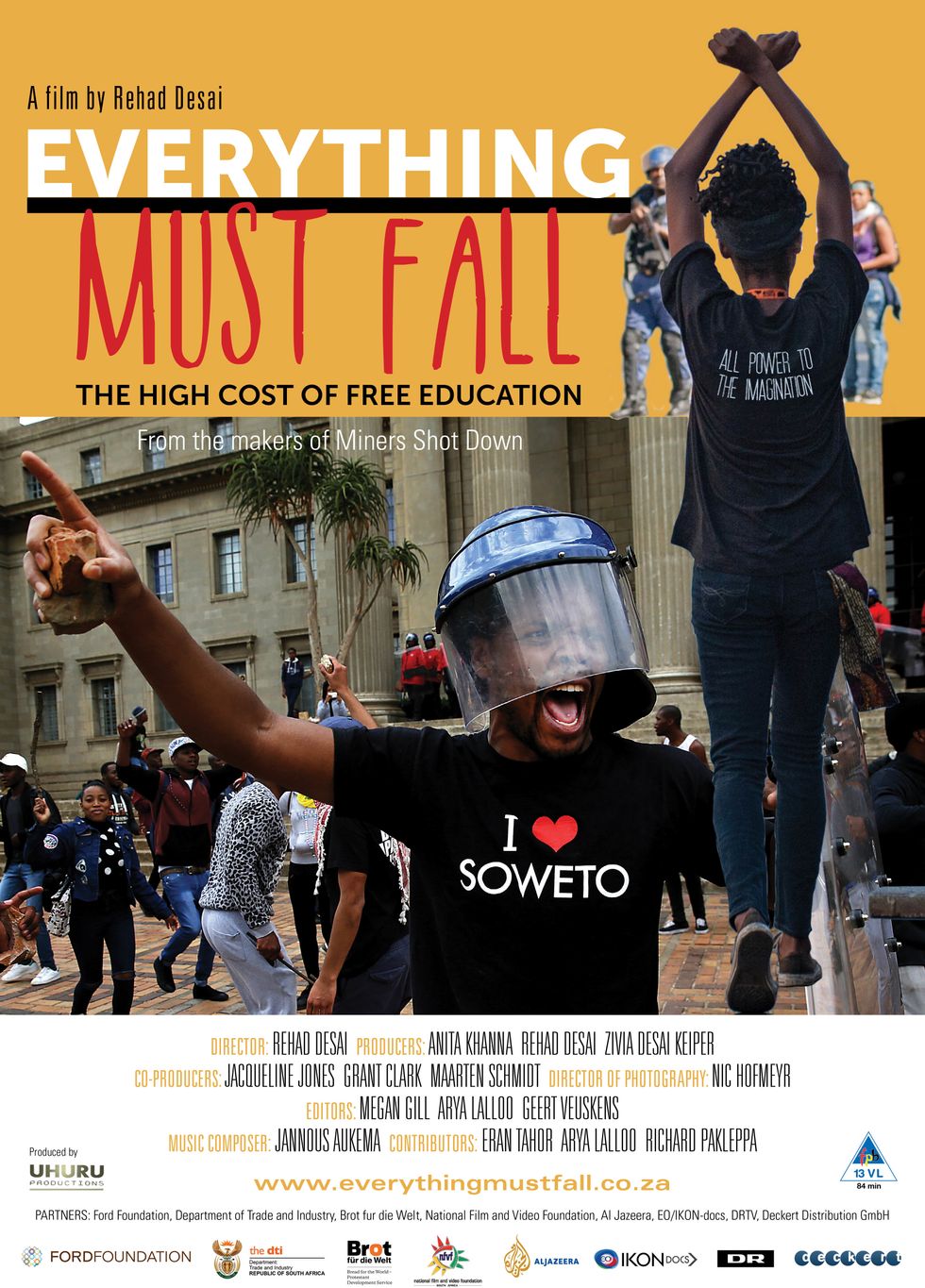In Conversation with Rehad Desai: "This was the biggest protest movement in post-Apartheid history."
The internationally-acclaimed filmmaker talks about documenting one of the largest student movements of the 21st century in 'Everything Must Fall'.

Still from documentary
Everything Must Fall documents the Fees Must Fall movement which happened in 2015 and continued into 2016. It is a raw and uncensored account of what happened when thousands of South African students mobilized across the country and refused to be kept out of the very institutions they believed would end the cycle of poverty and unemployment that dominated their lives and those of their families.
The documentary, which is directed by Rehad Desai, is narrated by four of the prominent student leaders who were at the front line of violent clashes with police all the while fighting for the immovable belief that universities should not be elitist spaces that exclude the poor. Professor Adam Habib, The Vice Chancellor of the University of the Witwatersrand—the birthplace of the student movement—is also featured in the documentary.
Desai is a prolific South African filmmaker whose films have been screened at over 40 film festivals including Cannes. He's also a social activist who returned from political exile in the UK towards the end of Apartheid in 1990. Bring those two elements together and you have explosive documentaries such as Everything Must Fall and Miners Shot Down.
Miners Shot Down documented the 2012 Marikana massacre where 34 miners were gunned down by the police, all because they had asked for better wages and for their employers to simply "come and see how they were living".
We sat down with Desai to talk about some of the challenges he encountered documenting this historical movement and what touched him personally as a storyteller.
This interview has been edited for length and clarity.
Fees Must Fall was and is a story about the youth. Why was it particularly important to you to document that story?
Well, I could relate for a number of reasons. One, I was very involved in student politics in the UK when I was doing my A levels and when I went to university in Zimbabwe from '87 to '90. A lot of what was being said resonated with me. Moreover, I'm a social activist, and I was feeling up until that moment, that I'd be going to my grave with these ideas with me and nobody else to follow behind me, so to speak.
Then all of a sudden, this young generation of people burst onto the scene and very quickly developed some quite hard-edged, radical ideas. There was a political imagination at work—it was fantastic.
When the students decided to continue with the protests, we decided then to move closer to the scene of action, so to speak. We decided to take these offices and just follow what was happening there and start identifying characters that we wanted to run with throughout this period.
Everything Must Fall - Documentary Trailer 2018www.youtube.com
Why did you the story the way you did?
Films are very expensive, very laborious and very labor intensive. This idea that the students should make their own films, tell their own history and so on, is a bit of a pipe dream. I mean, the film is primarily from the point of view of the students and that's important.
What were some of the challenges that you experienced in documenting Fees Must Fall?
Developing trust with the students. There's a couple of people that I tried to interview on numerous occasions, waiting, with all the cameras set up. And—your sound man hired, your camera man hired, your lights hired—they don't turn up. Four or five times with one person.
The other obstacle was they [student leaders] were very busy. I would've like to have stayed with them more. It was all very frantic in 2015 and 2016. The other challenge was the university itself. I think they felt quite threatened. I was chased away a couple of times by quite senior managers.
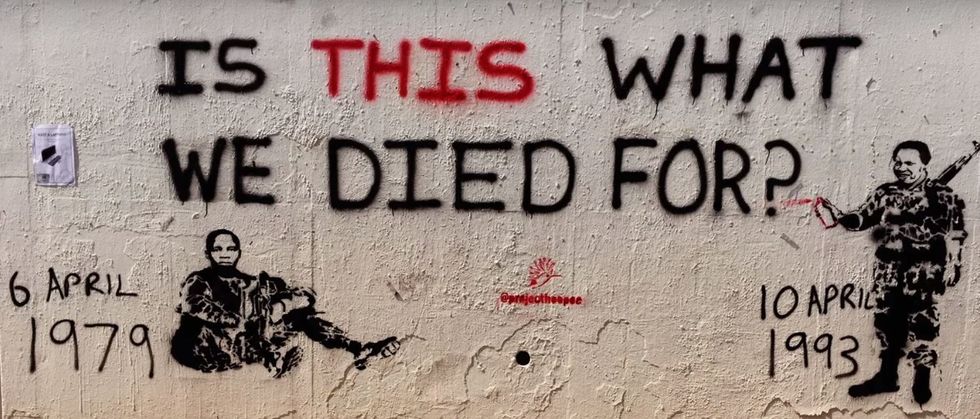
Why was that?
I think that was looking at why is Wits getting all this attention? "Look how much space we're giving you and now you need permission to be on this campus." I ignored that when we worked.
But you know, just getting into the residences and the dining hall—getting in there and having permission, it was quite a job. But they gave way. They gave a lot of cooperation—I've got to give them that. Adam Habib was particularly open. He gave me a whole number of interviews. Gave me a lot of his time.
The other big challenge was the fact that this was a highly-contested movement. This notion of "Oh, wow, why are you putting ANC people in there? Why did you put EFF people in there? The movement's not about that."
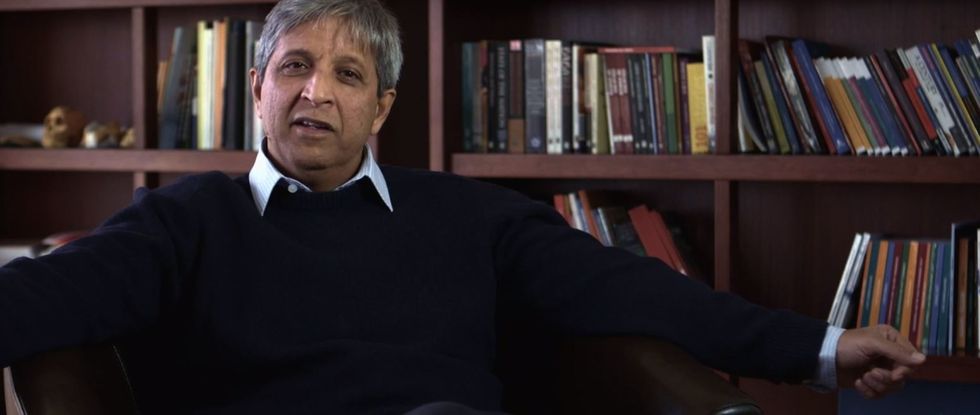
After filming thousands of hours of footage and doing these personal interviews, did you get the sense that the government was actively interfering and sewing division among the students?
I mean, all political parties were contesting in a way. But because of the very scale of the mobilization, the resonance—it was the zeitgeist—it came at the right time and the right moment.
The political partisan nature of it really was there following that zero percent announcement. I believe, and there is clear evidence of the ANC trying to rein back as far as possible their student involvement in the form of their student structures and student-aligned structures. The ANC had its own internal problems as we know. It all fed into this very fractious environment where they quite quickly turned to state security.
There was a momentum developing among the young; among the students. The EFF's manifestation of what's been happening at a generational level. This thing's been brewing for a while.
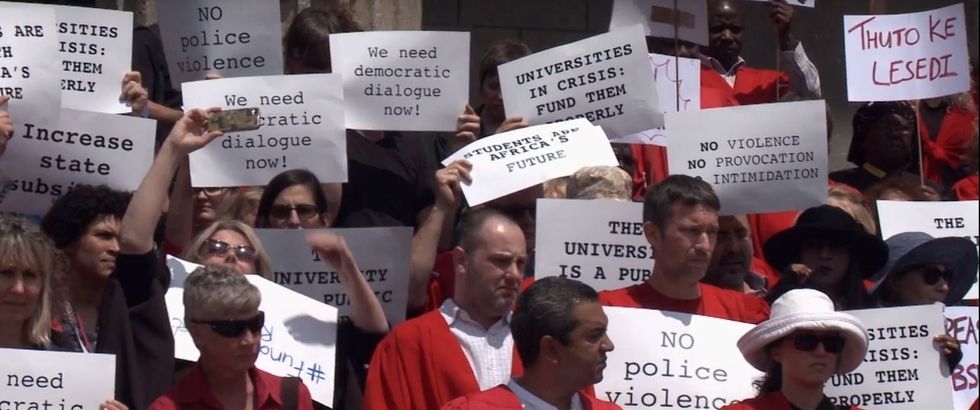
What did you think about the militarization of the campus?
In 2016 we saw thousands of police deployed to the campuses, state security agencies and the refusing of giving people bail. This was a concerted strategy to contain the movement as far as they could. This idea that somehow it's a constitutional right to education that's being interfered with. I think that's actually nonsense. You actually polarize the situation much more deeply.
"You say to people, "Well, fuck you if you're poor and you can't afford fees. We're here to provide a service.""
It just confirmed the suspicions people were having about the nature of these universities. They're to serve the wealthy and the rich and the powerful and their interests.
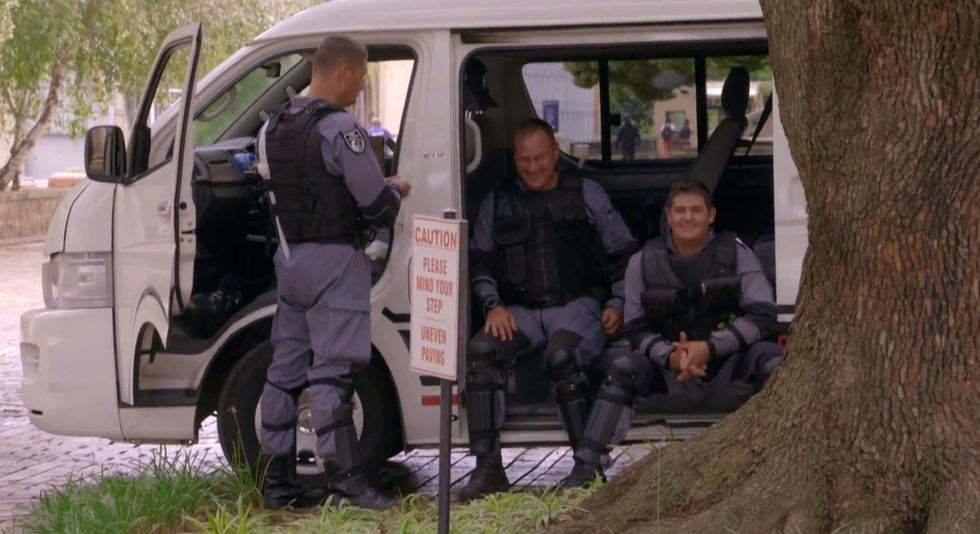
What do you think are some of the parallels that can be drawn between Everything Must Fall and your previous documentary on the Marikana massacre, Miners Shot Down?
I spent many months following the massacre. Amid the strikes, I was hearing the same thing and that was, "We are trapped in a cycle of poverty."
I think in many ways, the whole struggle around the fees and free education is the same thing. University is seen as a way to escape the cycle of poverty and more so as unemployment increases. So that spirit to engage and undermine the role of the market on miners, in terms of a living wage and then the fees and the right to education—it's a very similar spirit.
It's saying that there is much more to our humanity and our lives (and as a people) than the frame you're trying to put us in.
Now it's 2019 and students might not be on the streets protesting, but there's still very much that desire for free decolonized education. Where do you think things stand right now?
We saw at the beginning of this year and the end of last year, it was always the beginning and towards the end of the academic year that we see these mobilizations. I think we will see it flare up again this year. I don't think we've seen the end of this movement. It may be called something else. It may take a different form.
When you starve universities of funding, you quickly develop a big backlog in infrastructure. Our lecture halls aren't big enough. We've had a massification of education, massive expansion opening up. There's not enough accommodation. The libraries are becoming inadequate. There's also a lot of focus on research whereas it should be on teaching.
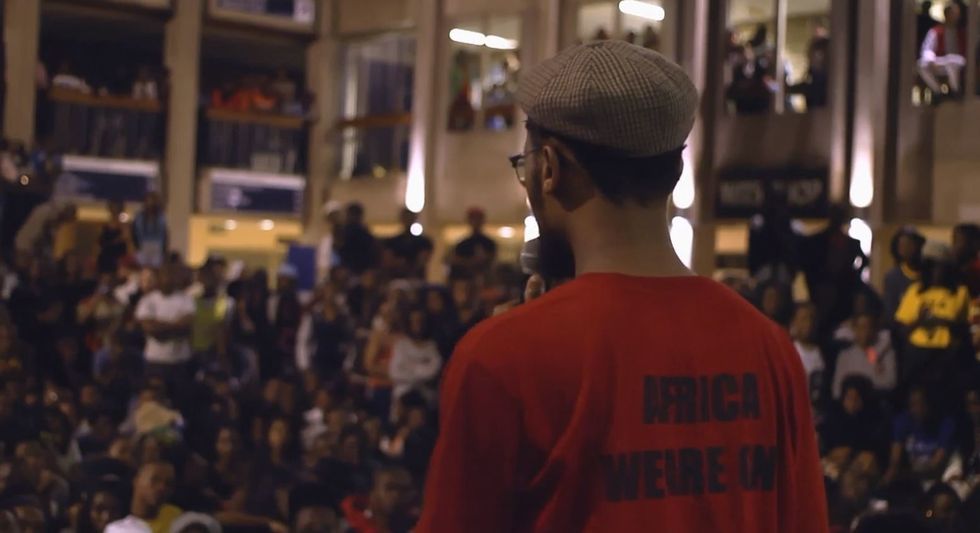
Personally reflecting on the stories you've documented thus far, what was particularly heartbreaking for you?
Well, the biggest single event which I had the privilege to tell a story about was Marikana. That was heartbreaking. Seeing that and seeing all that footage was shocking and there was no going back for me after that. I was voting ANC up until that stage. I was political, never a member, but that was the turning point for me and a turning point in my life.
But the great success of that film, in being able to help form a discourse around the event, across society, politicians included, meant me taking my professional form and genre more seriously. It showed me the power of the genre. The responsibility, specifically in a context like ours, is pretty great.
You can stream Everything Must Fall on Showmax.
